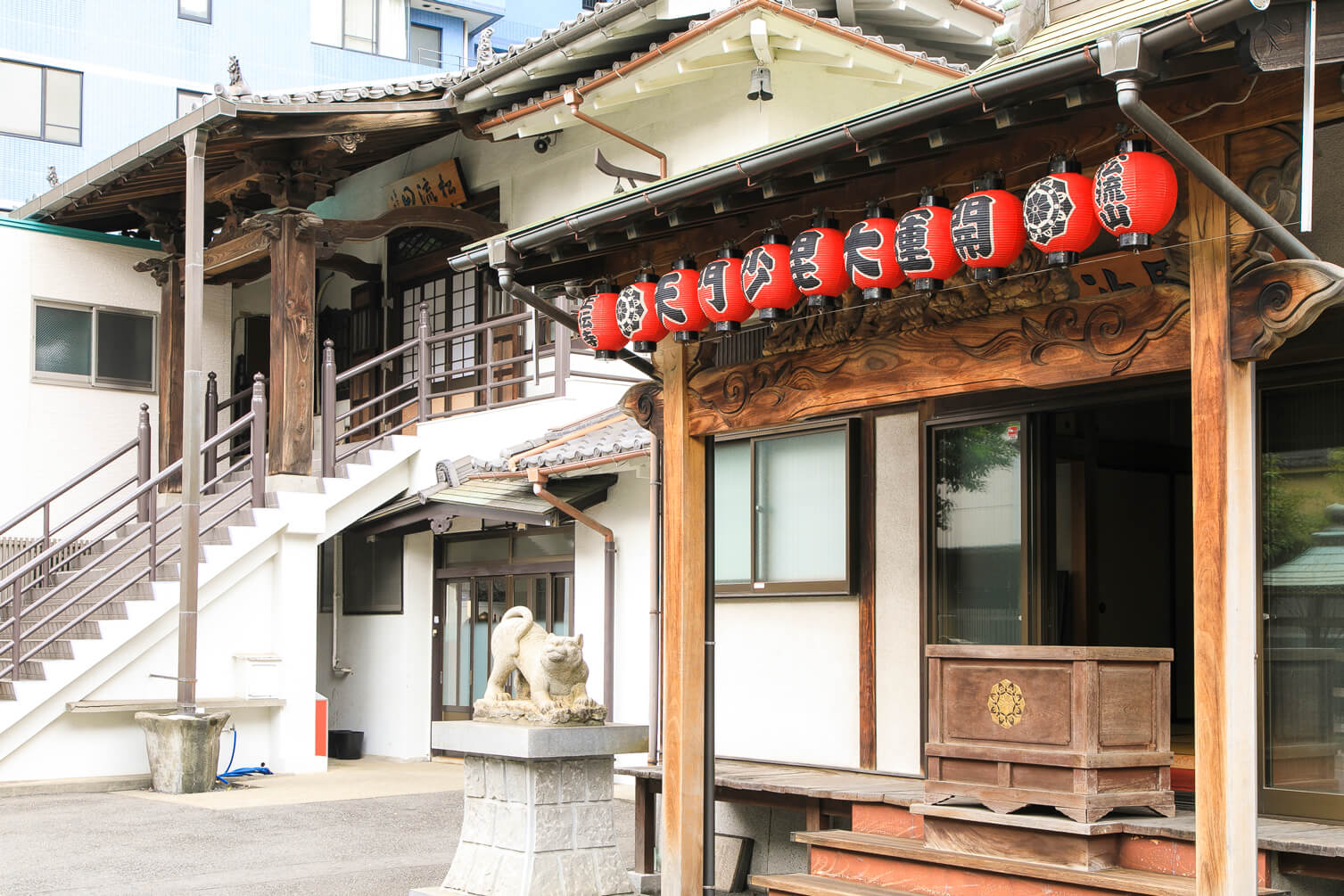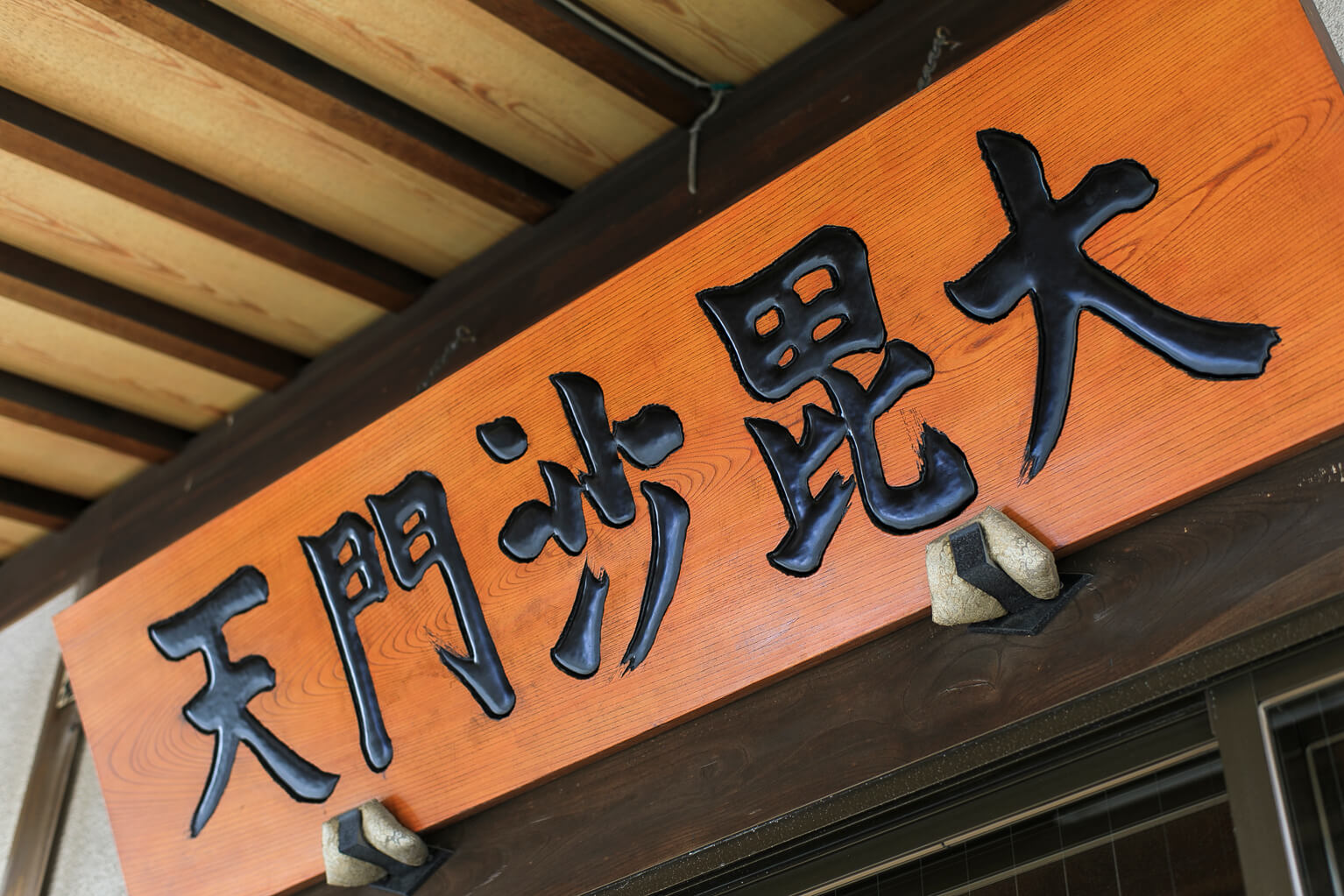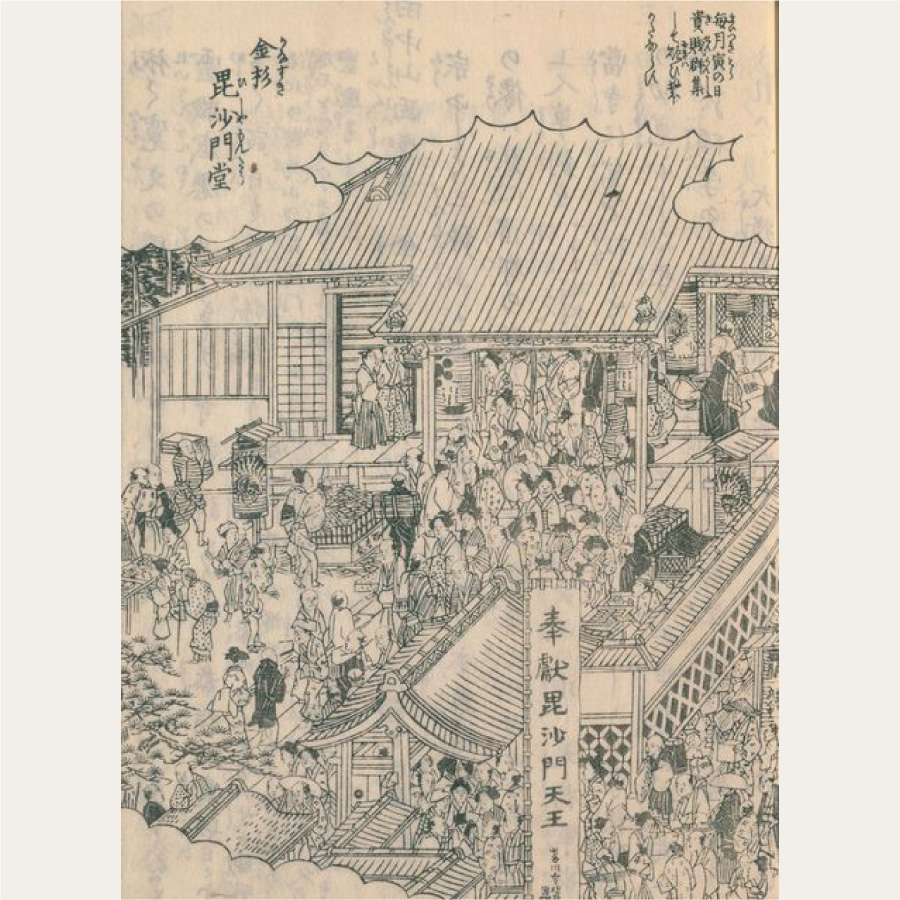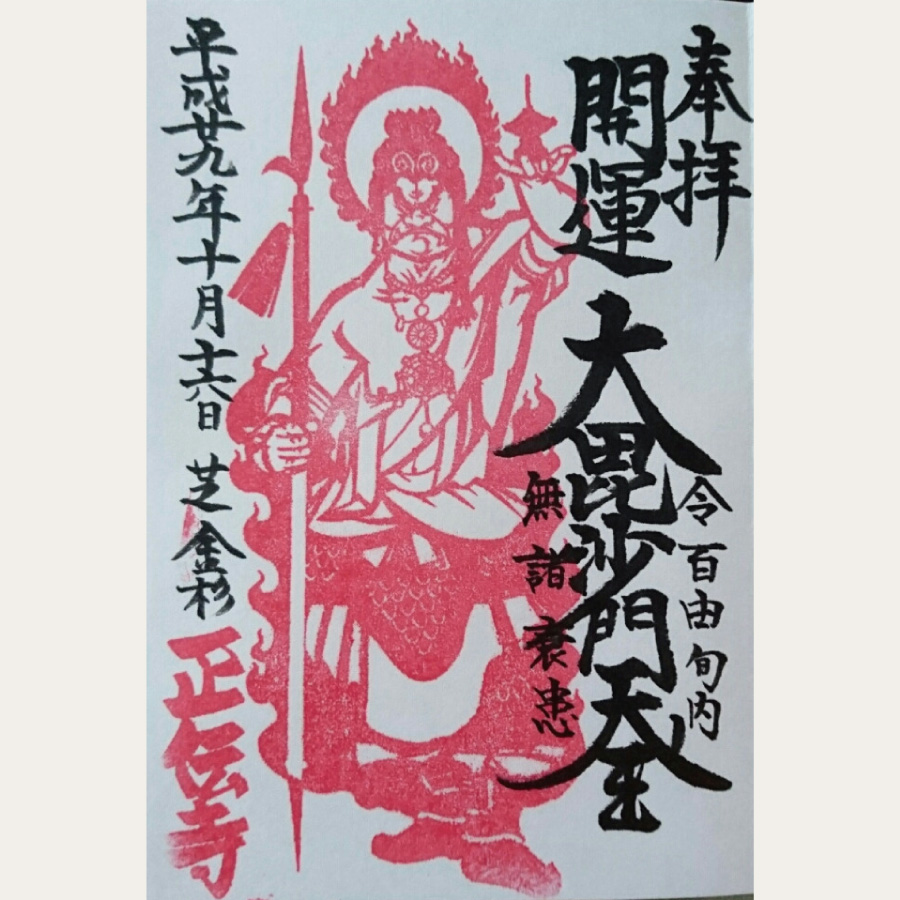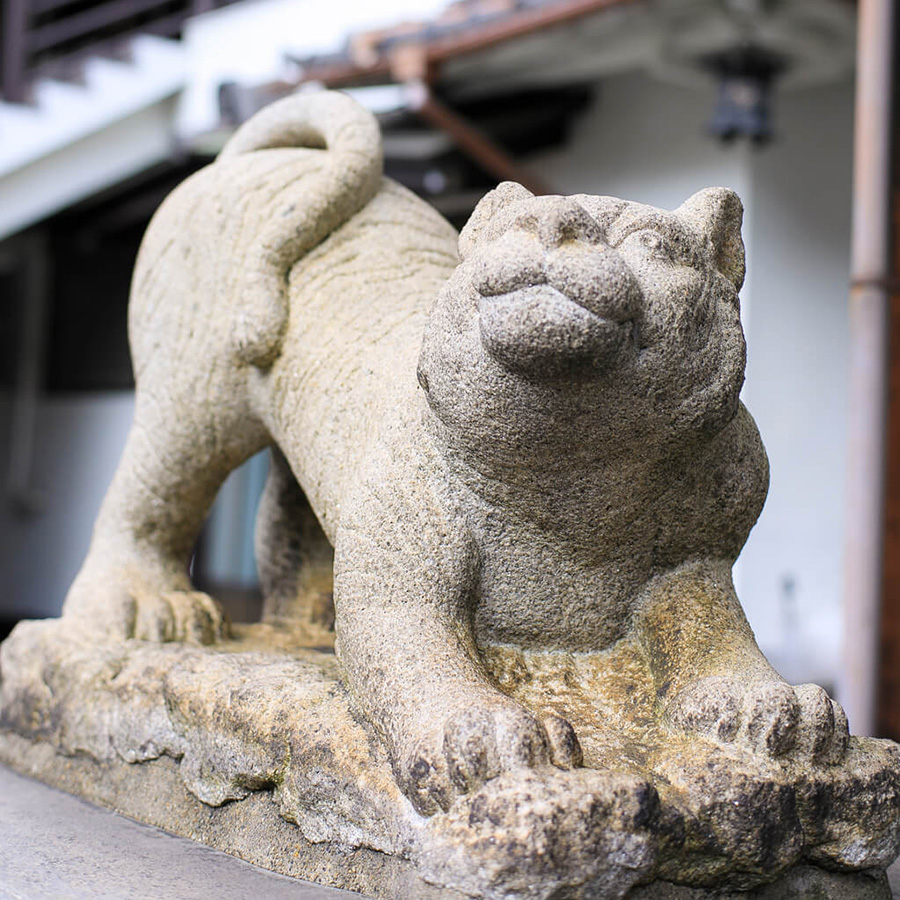Temple
Shodenji Temple is the temple where the 107th Emperor spent the last years in 1602.
After then, this temple became the Edo branch office of Nichiren sect,
a major sect among the 13 Buddhist denominations in Japan,
and officially became a temple as "Matsuryusan Shodenji" whose name is still used.
The guardian deity of Shoden-ji Temple is the Bishamonten(Vaisravana).
In the first place, Bishamonten is one of the gods of "the four heavenly kings"
who are legendary told be the strongest among the gods who protect Buddhism.
Although originally a god of India,
Bishamonten was a popular god among ordinary Japanese
so that it could be one of the "Seven Deities of Good Luck"
that is Japan's unique faith.
“Seven Deities of Good Luck” were scolded as a god with so many benefits.
This picture is “Edo Meisho Zukai”. It’s made in 1830s and it shows lifestyle of people who lived in Tokyo at Edo period. You can see how lively it was. In the picture, a figure of a commoner who visits Shodenji on "The day of the tiger" is drawn. In the old calendar, "The day of the tiger" is said to be a day when the fortune rises. Even now at Shodenji Temple, open books and prayers will be held in Bishamondo on "The First Day of the Tiger" in New Year, May, and September.
The red stamp of Shodenji is painted with Bishamonten. Here at Shoden-ji Temple, one of the venerable Bishamonten statues of the same sect was presented by a high priest of Nichiren sect. Therefore, Shoden-ji is one part of The "Edo three largest shrines" and collected the faith of many common Japanese.
Bishamonten was deeply revered as the “God of Good Luck” by the warlords who made their name in the Warring States period. Since the end of the Warring States period and entering the Edo period, Bishamonten has been believed as a special god who brings economic fortunes.
Bisyamonten’s luck
・Thriving business
・Economic fortune
・Wining luck
・avoid disaster
